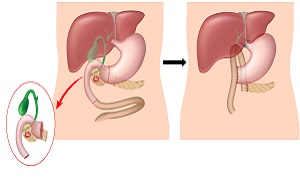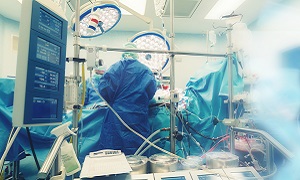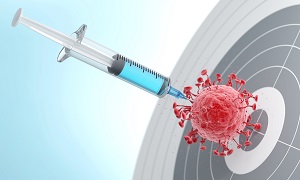Best Pancreatic Cancer Treatment Doctors in India
Best Pancreatic Cancer Treatment Hospitals in India
Hospital Highlights:
- Apollo Hospitals is a private healthcare group in India, with its headquarters based in Chennai. Established in 1983 by Dr. Prathap C. Reddy, the group offers a wide range of medical treatments and services across various specialties.
- It is renowned for emphasizing innovation and utilizing cutting-edge medical technologies into patient treatment.
- Known as India’s first corporate hospital, Apollo Hospitals is often credited for pioneering the private healthcare revolution in the country.
- With clinics and hospitals located all throughout India, Apollo Hospitals is a nationwide healthcare organization. Its presence can also be found in foreign countries.
- Preventive health examinations, medical and surgical treatment, and diagnostic centres are just a few of the services that the Apollo group provides.
- The group has several centres of expertise, including Cardiac Sciences, Neurosciences, Orthopedics, Emergency Care, Cancer Care, and Organ Transplantation.
- City: Chennai, India
Hospital Highlights:
- RIMC is a multi-specialty hospital in a sprawling area of 36 acres located in Chromepet, Chennai, Tamil Nadu, India.
- The facility has 450 beds including 130 critical care beds, 9 operating rooms, modern reference laboratories and radiology services, and is conveniently located near road, rail and air transportation.
- RIMC is led and managed by world-renowned physicians committed to healthcare.
- RIMC offers the broadest range of clinical care, education, and research. The hospital offers state-of-the-art technology and modern treatment facilities designed to provide health care at an affordable cost.
- Rela Institute is driven by patient needs, comfort and confidence.
- City: New Delhi, India
Hospital Highlights:
- Fortis Hospital in Shalimar Bagh is a multi-super specialty hospital that strives to provide world-class patient care by leaving no stone unturned.
- Fortis, Shalimar Bagh, with 262 beds and a 7.34-acre footprint, provides the best level of medical care through its team of doctors, nurses, technicians, and management professionals.
- City: Bengaluru, India
Hospital Highlights:
- Established in 2007, the Apollo Hospitals Bangalore is a 300-bed multispecialty hospital situated in Bannerghatta Road, Bangalore.
- Equipped with the state-of-the-art technology, it is a leading hospital dedicated to providing healthcare needs to patients with compassion and expertise.
- It is the first hospital to have completed the highest number of Robot Assisted Heart Surgeries in India.
- Over the years, it has successfully conducted some of the rarest medical procedures such as spinal angiolipoma excision, autologous chondrocyte implantations, and tibial tuberosity shift with MPSL reconstruction.
- The Apollo Hospitals Bangalore has the reputation of performing the greatest series of airway stents in the country.
- Additionally, the hospital is known for providing comprehensive treatment in specialties such as gastroenterology, urology, gynecology, oncology, colorectal surgery, etc.
- The “The Minimal Access Surgery Centre” (MASC), one of Apollo Hospitals, Bangalore’s premier Centres of Excellence, is devoted to the use of minimally invasive surgical procedures.
- In 2013, THE WEEK-A C Nielsen, Best Hospital Survey ranked Apollo Hospitals Bangalore as the 2nd best multi-speciality hospital in Bangalore.
- City: Mumbai, India
Hospital Highlights:
- Gleneagles Global Hospital The 450-bed facility comprises of 17-stories, housing state-of-the-art infrastructure, and advanced medical care facilities.
- The hospital offers end-to-end clinical, surgical, and diagnostic services. It is equipped with a team of eminent medical professionals aided by qualified nurses and medical staff
- The Hospital offers advanced Endoscopic procedures, Hepatobiliary and Liver Surgeries, Surgical and Medical Gastroenterology, Bariatric Surgery, and Robotic surgery.
- The hospital is a center of excellence for Orthopedics, Joint Replacement, Knee Replacement, and Hip Replacement surgery.
- City: Hyderabad, India
Hospital Highlights:
- CARE Hospitals were established in the year 2000, by CARE Group.
- The multispecialty hospital has 435 beds, including 120 critical care beds, with an annual inflow of 180000 outpatients and 16,000 in-patients.
- The hospital provides specialty medical services in Cardiology, Cardiothoracic Surgery, Pediatric Cardiology, Pediatric Cardiothoracic Surgery, Neurology, Neurosurgery, Nephrology, and Urology.
- The hospital has the first dual source, 128 slice CT scanner (for high precision cardiac imaging) – the first of its kind in south India.
- The hospital offers a wide range of accommodation facilities for the convenience of its varied patient base, ranging from general wards to super deluxe rooms.
- City: Mumbai, India
Hospital Highlights:
- Fortis Hospital in Mulund is a 315-bed multi-speciality tertiary care hospital with five JCI accreditations that offers a wide variety of diagnostic and treatment services. The Fortis Hospital in Mulund delivers patient-centred treatment with cutting-edge technology, highly skilled and experienced surgeons, and paramedical staff.
- This institution houses Maharashtra’s largest multi-organ transplant centre. It is also the first heart transplant centre in western India to conduct 100 or more consecutive heart transplants in under four years. It is the only hospital in the city to have multi-organ transplants and has handled the youngest patient for angioplasty. Fortis Hospital Mulund now boasts the first advanced surgical robot in central Mumbai.
- Cardiology and heart surgery, urology, nephrology, neurosciences, orthopaedics, digestive care, emergency and critical care, and maternity care are among the services provided by the hospital.
- City: New Delhi, India
Hospital Highlights:
- Manipal Hospitals, Dwarka, is a super-specialty hospital in Dwarka, New Delhi, which is a part of Manipal Hospitals Group.
- The hospital aims to provide the best treatment on par with international standards at a fraction of the cost.
- Equipped with 380 beds, the hospital is also one of the new age hospitals which are equipped fully with state-of-the-art infrastructure, cutting-edge technology as well as the latest and advanced clinical practices. The hospital also has 13 modular Operation theatres with 118 beds which are solely meant for critical care.
- The hospital comprises internationally acclaimed doctors and highly professional and experienced hospital and medical staff who are able to provide preventive, therapeutic, and diagnostic services all under one roof.
- City: Chennai, India
Hospital Highlights:
- Located in Chennai, India, MGM Healthcare is a top multispecialty hospital that provides all medical services under one roof.
- Since its founding in 2019, MGM Healthcare has quickly become a leading national referral centre, creating several innovative flagship initiatives.
- MGM Healthcare combines next-generation medical and digital technologies to provide better patient results.
- With 12 centres of excellence, more than 400 inpatient beds, 100 intensive care unit beds, and 24/7 emergency care, MGM Healthcare leaves no chance in redefining the patient experience in Chennai.
- MGM Healthcare boasts 250+ expert doctors across 30+ departments, including Cardiology, Pulmonology, Neurology, Obstetrics & Gynaecology, and more.
- They house 12 specialized Centres of Excellence, including Neurosciences, Orthopaedics, and Multi-Organ Transplantation.
- Their team of doctors, nurses, and paramedics works together to give every patient individualized treatment.
Hospital Highlights:
- Lilavati Hospital & Research Centre is India’s premier multi-speciality tertiary care hospital and has been recognised as a global medical excellence centre.
- Lilavati Hospital & Research Centre has built an unrivalled level of trust with its patients over the years, thanks to a solid foundation that comprises cutting-edge facilities, the best medical competence, research, education, and charity endeavours.
- The hospital is quite proud of the fact that it now serves patients from all kinds of backgrounds, not just from the United States but from all around the world.
- The hospital has a total of 323 beds, one of the largest Intensive Care Units (ICUs), 12 Operation Theatres with modern amenities, over 300 consultants, and almost 1,800 personnel.
Pancreatic Cancer
Pancreatic Cancer is the cancer that begins in the tissues of the pancreas.
Pancreas is the organ that lies behind the lower part of the stomach. The main function of pancreas is that it releases enzymes that help in digestion & hormones that manages the blood sugar level.
Pancreatic cancer is hardly ever detected in early stages since it shows no symptom in early stages. It gets noticed when it has already spread to other organs (4th or 5th stage), thereby making treatment quite difficult.
Signs & symptoms of Pancreatic Cancer
- Fatigue
- Loss of appetite
- Jaundice
- Pain in the upper abdomen.
- Back pain
- Nausea & vomiting
- Malaise, feeling of discomfort or unease whose exact cause is not known.
Causes & risk factor of Pancreatic Cancer
- Smoking
- Diabetes
- Family history of pancreatic cancer.
- Pancreatitis (swelling of pancreas)
- Ulcer in the stomach
- Alcohol consumption
- Obesity
- Pancreatic cancer is more common in older people
Types of Pancreatic Cancer
There are two major types of Pancreatic Cancer:
- Exocrine Pancreatic Cancer- It is the cancer that begins in the exocrine cells, cells that produces pancreatic digestive juices. Exocrine Pancreatic Cancers make up for about 95% of Pancreatic Cancers. The sub-types of Exocrine Pancreatic Cancer are:
- Adenocarcinomas- These begin in the cells that line the ducts of the pancreas & are the most common type of exocrine pancreatic cancer, accounting for around 90% of Pancreatic cancers.
- Squamous Cell Carcinoma (rare type)
- Adenoquamous Carcinoma (rare type)
- Colloid Carcinoma (rare type)
- Endocrine Pancreatic Cancer- These begin in that part of pancreas where Insulin and other hormones are made and released directly into the blood. Endocrine Pancreatic Cancers are named after the hormone they produce like gastrinomas produce a gastrin & insulinomas produce insulin to name a few. They make up for less than 5% of Pancreatic Cancers.
*Benign cysts and lesions in Pancreas- These can be precancerous formations and are generally removed once noticed, or closely monitored for malignancy.
Stages of Pancreatic Cancer
- Stage 1: Cancer is limited to the pancreas.
- Stage 2: Cancer is confined to the pancreas but the tumour has grown in size (greater than 2 but no more than 4 centimeters).
- Stage 3: The tumour is over 4 centimeters in size and the cancer may have spread to nearby lymph nodes.
- Stage 4: The cancer has spread to the nearby blood vessels or nerves.
- Stage 5: Cancer has spread to distant organs.
Diagnosis of Pancreatic Cancer
- Blood Test
- PET scan- It helps to check the degree of pancreatic cancer spread
- Endoscopic Ultrasound
- MRI
- Biopsy- Tissue sample from the suspicious area is taken & send for examination. Biopsy can be performed in the following way:
- Percutaneous needle biopsy also known as fine needle aspiration (FNA)- A needle is inserted into the mass & some tissue is captured.
- Endoscopic retrograde cholangiopancreatography (ERCP)- In this process a flexible tube with a camera and other tools on its end (endoscope) is put through the mouth to the small intestine, near the pancreas. & helps to collect images as well as tissue sample of the affected area.
Treatment of Pancreatic Cancer
The Treatment of Pancreatic Cancer depends on the stage and grade of cancer. After evaluation of the aforesaid through proper investigations, your oncology team will decide on your treatment plan or protocol. Following are the options considered for effective Pancreatic Cancer Treatment.
Surgery
There are quite a few different types of surgery that are done for Pancreatic Cancer depending on the size of the tumor and organs involved.
Whipple Procedure
It is also known as pancreaticoduodenectomy. In this procedure, the head of the pancreas, the first part of the small intestine (duodenum), the gallbladder and the bile duct and nearby lymph nodes are removed. In some situations, part of the stomach and colon can be removed. The surgeon that reconnects the remaining parts of pancreas, stomach and small intestine to enable digestion of food.
Distal Pancreatectomy
Total Pancreatectomy
The entire pancreas and the spleen are removed. You can actually lead a normal life after Pancreatectomy. However, you will need lifelong insulin and enzyme replacement as these are the functions of the pancreas.
Chemotherapy
Chemotherapy is the use of anti-cancer drug that helps to slow or stop the growth of rapidly dividing cells that cause cancer. It prevents the growth of rapidly dividing cells by killing the dividing cells.
Despite its side effects, chemo is still the most widely used cancer treatment option. Unlike radiation and surgery which treats cancer cells at particular locations, chemotherapy drugs can kill cancer cells that have metastated (spread) to different organs in the body.
Targeted drug therapy
Targeted therapy is a type of cancer treatment that uses cancer drugs. However, it is different from traditional chemotherapy, which also uses drugs to kill cancer cells. In Targeted therapy, the cancer’s specific genes, proteins, or the tissue environment that contributes to cancer growth and survival are targeted. Targeted therapy is generally used with chemotherapy and other interventions.
Radiation therapy
Radiation Therapy is a kind of cancer treatment that uses high doses of radiation beams to kill cancer cells to shrink the tumors. Radiation kills the cancer cells by destroying the DNA. Cancer cells with damaged DNA fail to multiply and die. They are then removed by the body’s mechanism.


















